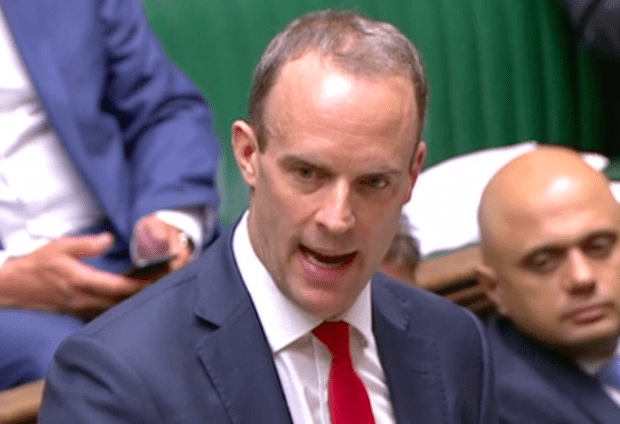Dominic Raab’s Commons debut as Brexit Secretary didn’t go exactly as he would have hoped. He was greeted with louder heckles than normal from the Opposition owing to the fact that the Brexit white paper had not been given to MPs prior to the statement. Despite this, Raab put in a solid performance as he tried to show it was business as usual despite a turbulent week for the government which saw David Davis and Boris Johnson quit the frontbench – and a Eurosceptic rebellion brewing.
The publication of the White Paper is unlikely to calm nerves. The issues that are set to stoke the most interest include the fact the government is now seeking ‘association agreement’ – something they appeared to previously dismiss. There will be no services deal for the City and bulk of the economy. Finally, on immigration, there is the possibility of preferential access for EU citizens after Brexit – however, No 10 insist that any deal offered will be the same deal available to any country that is a close partner and that this will not amount to freedom of movement.
Mindful that a growing number of Tory MPs have already written off the government plan detailed in the White Paper, Raab did his best to play up his Brexiteer credentials. He spoke about the need to prepare for ‘no deal’ and suggested that the UK would stop its £39bn payment to EU if Brussels stalls on trade talks after Brexit.
Brussels have been quick to respond. Guy Verhofstadt – not known for being helpful to May – said he welcomed the White Paper and would now analyse it in detail. Michel Barnier went further – declaring that he was ‘looking forward’ to negotiations next week: ‘EU offer = ambitious FTA + effective cooperation on wide range of issues, including a strong security partnership.’
However, their encouraging words will do little to ease nerves. Many in government worry that Brussels merely hopes to string the UK along until it gets so late into the negotiations that No 10 have little choice but to say yes to undesirable things. No 10’s gamble with Brussels is that their proposition of a single market for goods goes against the four freedoms the European Commission holds dear. May hopes that she can appeal to member states to soften the lines. If she can’t, no deal could start to look more appealing.







Comments